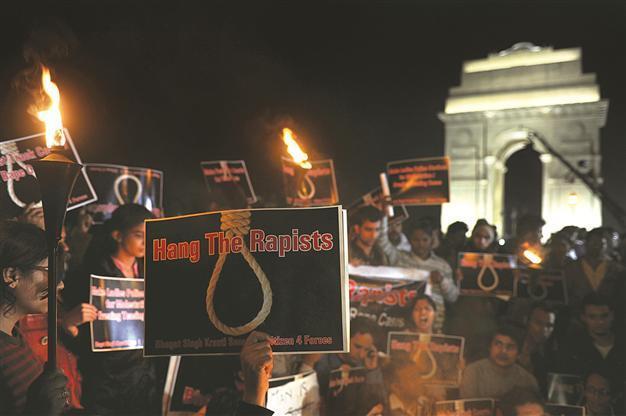UN survey reveals rape crisis in countries of Asia-Pacific
BANGKOK - Agence France-Presse

Indian students and activists carry placards at India Gate in New Delhi during a protest following the gang-rape of a student in the Indian capital. AFP photo
Nearly a quarter of men surveyed in six Asia-Pacific countries admit to committing rape, often against their own partners, according to a U.N. report published yesterday that exposes widespread violence against women.Based on anonymous interviews with more than 10,000 men aged between 18 and 49-years-old in Bangladesh, China, Cambodia, Indonesia, Sri Lanka and Papua New Guinea, the study is the first of its scale in the region.
“Violence against women is a harsh reality for many,” Roberta Clarke, regional director of U.N. Women, said at the launch of the report in Bangkok.
“We must change the culture that enables men to enact power and control over women.” The prevalence of rape varied widely between locations, the U.N. said, explaining its sample areas were not representative of whole countries.
Using a definition of non-consensual, penetrative sex as a benchmark, the study said 11 percent of respondents reported having raped a woman who was not their partner.
This rose to nearly a quarter -- 24 percent -- when their partner was included in the question.
Of those men who said they had committed rape, just under half (45 percent) said they had raped more than one woman. Alarmingly, of those who admitted rape, half were teenagers and 12 percent were younger than 15-years-old, while the majority of men surveyed said they had not faced any legal consequences for their actions.
Highest at 62 percent
The highest prevalence (more than 62 percent) of rape was found in Bougainville, in Papua New Guinea, where a decade of war ravaged the island until 1998 and community justice is often favoured over legal process.
In the restive neighboring Indonesian region of Papua the rates were at nearly 49 percent, while 26 percent of respondents in Jakarta admitted to the crime.
The probe is not intended to be an authoritative statistical overview of rape in these six countries or of the Asia-Pacific region, say the authors.
“Violence is pervasive but it is also preventable,” according to report researcher Emma Fulu of Partners for Prevention.
“The factors we found associated with violence are changeable,” she said, citing high rates of child abuse, recent conflicts shredding social structures and poor law enforcement. Until now, such research has depended mainly on crime reports, which may be sketchy or skewed, or on accounts by women.
















